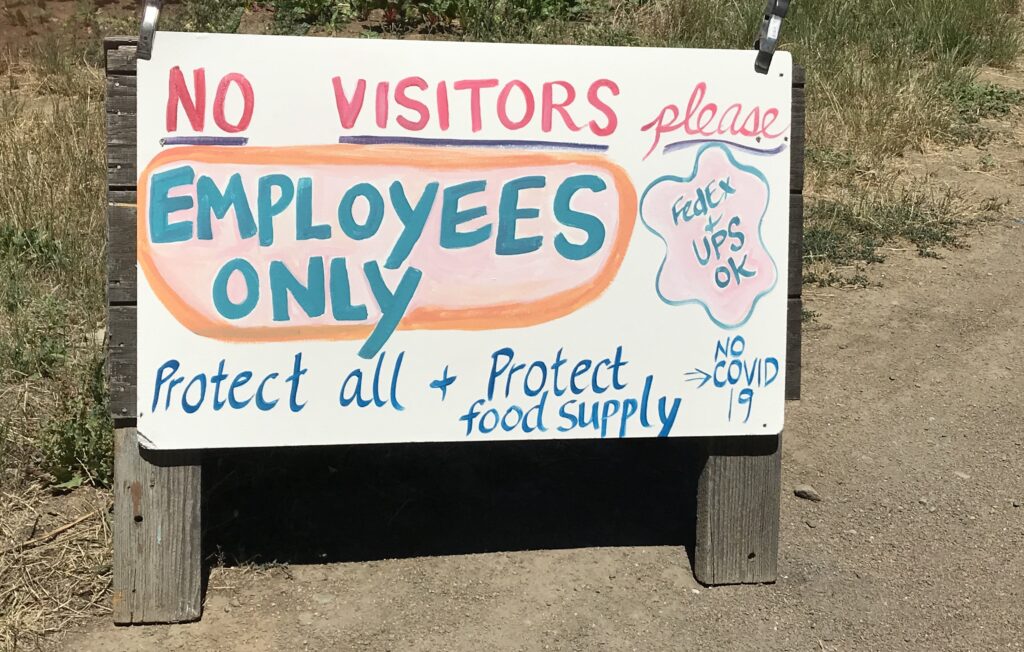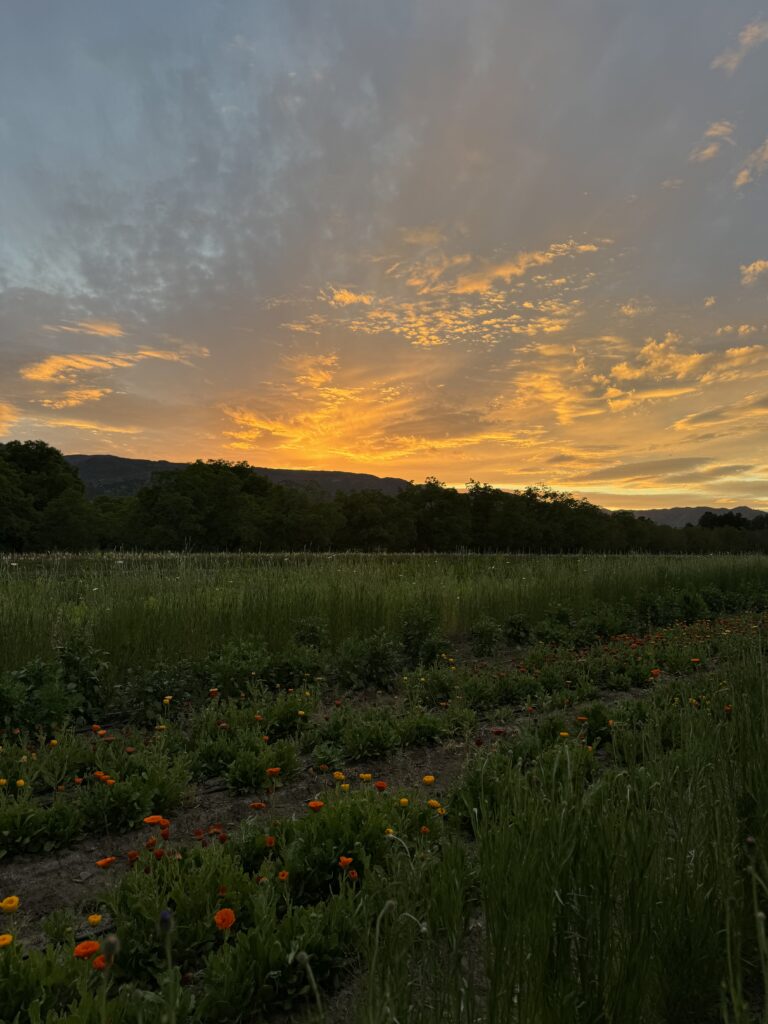Alicia Baddorf, a friend of mine who’s long been active in the Yolo County agriculture community, recently conducted research on the impact that the COVID-19 pandemic had on Northern California CSA Farmers for her Master’s thesis in the Community Development Program at UC Davis. Full Belly Farm was included in this study and I found the results really interesting and thought our community would too! Thanks to Alicia for writing up some reflections and sharing them with us! For those interested in reading her entire thesis, you can find it here.
Elaine Swiedler, CSA Manager
Hello, Full Belly CSA members!
I’d like to start by sharing a little background about myself. Farming is close to my heart. I spent about 5 years farming at a small, diversified fruit and veg farm outside of Sacramento, which gave me a deep appreciation for farmers and the very challenging (though also rewarding) work they do. When the pandemic started in 2020, I was working at Terra Firma Farm in Winters, CA, as their sales and CSA manager. Needless to say, it was a chaotic time. While CSA membership had been relatively stable since arriving at the farm in 2018, I noticed a gradual uptick in the number of new sign-ups in early March 2020. Pretty quickly, as the quarantine began looming, the sign-ups started increasing dramatically to the point where we had to create a wait list for our CSA. The level of interest in the CSA program, in such a short period of time, was unprecedented. I was hearing the same things from other CSA farms in the region.
Of course, it’s great to get more business! However, there was no guarantee how long those new members would stick around. From a planning perspective, this is difficult for a farm. Do we plant 20 extra beds of tomatoes to accommodate the new membership? If we plant those tomatoes, the pandemic ends, and people drop out of the CSA and go back to their old shopping patterns, where do we sell all those tomatoes? The uncertainty from this perspective was jarring. Add on that the stress of taking measures to protect the health and wellbeing of our employees amongst constantly changing guidelines from the CDC. So much information was changing and we didn’t know what was going to happen from one day to the next.
A sign at the farm in 2020

As I headed to grad school in 2021, this experience left me with many questions. Were CSA farmers all experiencing the same thing? How did they deal with these sudden changes? And how are they and their businesses doing now? So, for my thesis research, I sought to answer these questions, collecting 29 survey responses and conducting 13 interviews, Full Belly Farm included (shoutout to Elaine and Judith!). Here are some of my findings:
- CSA farmers are extremely adaptable! On the fly, they came up with a lot of innovative and creative models to meet the surge in demand for CSA boxes including online farm stands, “one-time” first come first serve CSA boxes, making pre-packed mixed produce available at farmers markets, and CSAs created exclusively for those facing health or economic hardships.
- On average, CSA enrollment has gradually declined since its peak in 2020. In 2022 (the latest year my research covered), CSA enrollment was still slightly higher than it was in 2019 (pre-pandemic).
- Many CSA farmers struggled with stress and anxiety, highlighting a salient tension: a feeling of pride in feeding their communities during a crisis and a commitment to making sure their members were taken care of, while sometimes sacrificing their own well-being to make this happen. Remember, this was also happening at a time when there was a national racial reckoning, wildfires, drought, and flooding, among many other political and social issues. Many farmers experienced burnout from this period and these compounding events, on top of running a small farm business, sometimes led to health-related challenges.
Small farms proved to be nimble during the peak of the pandemic as part of resilient, local and regional food systems amidst supply chain disruptions and food shortages. Though the pandemic was a dramatic and major event, it is only one of many challenging experiences facing farms. Small farmers are constantly navigating obstacles to running a successful business: changing regulations, unpredictable weather patterns, economic crises, and more. CSA farms tend to produce ecological, social, and health benefits, often using farming practices that prioritize soil health, connecting communities and city dwellers to how their food is grown, and facilitating access to nutritious food. I encourage you to continue supporting Full Belly Farm and other small, local farms however it’s in your means: not just during a crisis, but during times of stability as well.
– Alicia Baddorf

